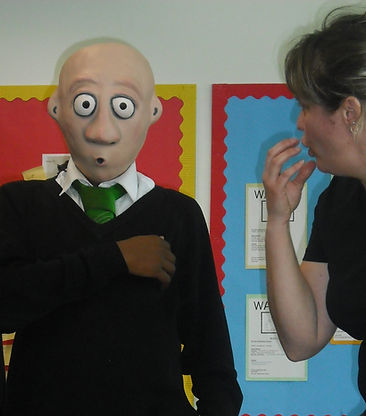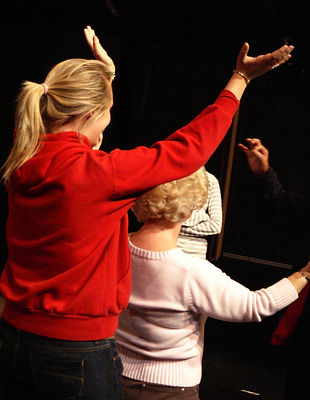About Drama Facilitators
For this study, I am defining drama facilitators as people who deliver workshops in schools, theatres, community centres and other settings, for the purpose of creating - and by 'creating' I mean anything from a full-blown production to just being part of the process of what was created in the room.
I am not including specialist facilitators, who have a high-degree of knowledge in one specific area e.g. stage combat, movement, puppetry or improvisation. I am more interested in the 'jack-of-all-trades' drama facilitator who has to adapt to multiple settings, groups, themes and outcomes.
I am also not including Drama Therapists (who utilise drama strategies to encourage healing), or corporate facilitators using drama techniques to help businesses strategically 'think outside the box'. I am however including drama teachers who work in school settings, as although they are there to educate, drama teachers do so through creating.
Speaking from personal experience, drama facilitators are tenacious, full of energy and highly skilled - here's just some of the skills drama facilitators possess.
(This is not an exhaustive list.)
improvisation
prop & costume making
mask & puppetry
movement & dance
audition prep
sound recording & editing
film-making & editing
playwrighting
stage combat
stage management
installing set
voice
acting & Stanislavski
running tech/LX & sound design
chaperone and safeguarding

Shakespeare's works, language, history ...
mentoring
understanding of theatre history
stage make-up
industry support with contracts, agents, casting directors, drama schools …
ability to create a ‘safe space’
The list goes on ...
knowledge of backstage theatre etiquette
understanding of different theatre conventions & genres
knowledge of different industry roles


_JPG.jpg)
Not to mention, a living library of go-to drama games...
Then of course there are the so-called 'soft skills' that drama facilitators develop (it's not all about specific industry-training) e.g. helping people achieve beyond their expectations, get clarity of thoughts, speak up, listen, feel part of a community, take risks, develop their sense of self, develop empathy ... again, the list goes on ...